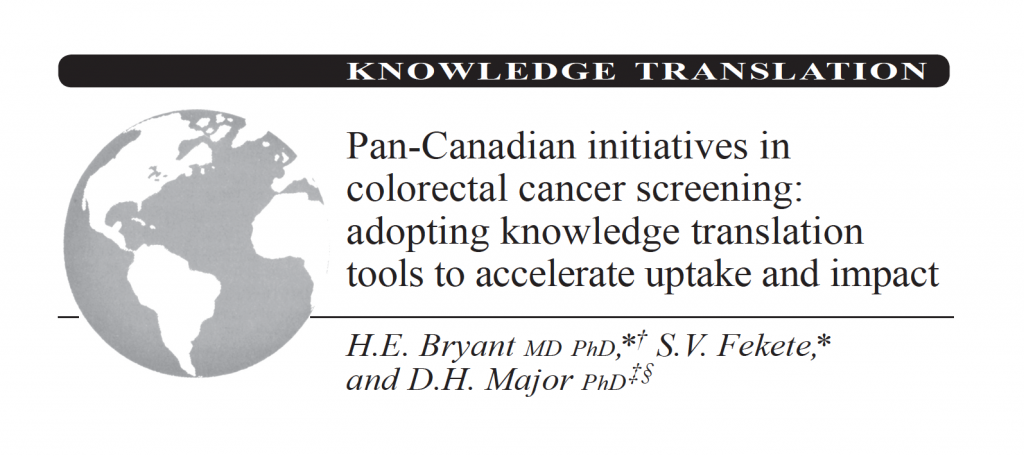 The other day, I was reading a journal article, ”Pan-Canadian initiatives in colorectal cancer screening: adopting knowledge translation tools to accelerate uptake and impact,” on Canadian efforts to increase colorectal cancer (CRC) screenings, when it struck me how similar they are to our efforts in oncofertility. In 2001, the Canadian Preventative Services Task Force recommended that all people 50-74 years old receive routine CRC screenings and that local programs be developed to increase participation. Three years later, fewer than 15% of age-appropriate people were up-to-date on their CRC screening and it wasn’t until 2007 that local leaders started to work together to increase this important step in early-cancer identification.
The other day, I was reading a journal article, ”Pan-Canadian initiatives in colorectal cancer screening: adopting knowledge translation tools to accelerate uptake and impact,” on Canadian efforts to increase colorectal cancer (CRC) screenings, when it struck me how similar they are to our efforts in oncofertility. In 2001, the Canadian Preventative Services Task Force recommended that all people 50-74 years old receive routine CRC screenings and that local programs be developed to increase participation. Three years later, fewer than 15% of age-appropriate people were up-to-date on their CRC screening and it wasn’t until 2007 that local leaders started to work together to increase this important step in early-cancer identification.
This information reminded me of those in oncofertility, that:
- In 2006, the American Society of Clinical Oncology (ASCO) published fertility preservation guidelines for oncologists.
- Since that time, the American Academy of Pediatrics, the American Society of Reproductive Medicine, and others state that young people should be informed and educated about the reproductive risks of cancer treatment and fertility options.
- Research shows that many of today’s young cancer patients still do not receive adequate fertility information.
While this data may initially seem frustrating, the Canadian program described in Current Oncology has been hard at work since 2007 to increase CRC screening rates. They did so primarily through two methods: by identifying ways to better monitor local health centers as they implemented plans to increase screening; by identifying gaps in knowledge that prevented people from complying with screening recommendations.
We at the Oncofertility Consortium are always interested in increasing provider knowledge about fertility in cancer and helping them communicate these options to patients. While data is still being identified about the effectiveness of the Canadian initiative, I look forward to the final results, as this model may be one that we in the fertility and cancer world can use to increase oncofertility patient navigation in the future.
Read the article, ”Pan-Canadian initiatives in colorectal cancer screening: adopting knowledge translation tools to accelerate uptake and impact,” in Current Oncology.

